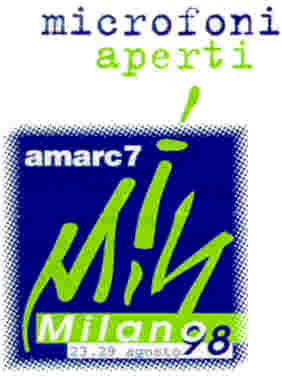amarc-3
[Date Prev][Date Next][Thread Prev][Thread Next][Date Index][Thread Index]
Re: <amarc-3> QUESTIONS FOR DISCUSSION 2
Here is a section from the MISA regulation briefing mentioned in my earlier
mail.
John b
Potential Regulatory Mechanisms
With the aim of promoting plurality, diversity, quality and access there
are a number of regulatory mechanisms available.
Ownership
* Regulation of ownership can be related to geographical area - for
instance a company or consortium might be limited to running a TV station
in only one area. The advantage of this method of allocation is that
greater regional diversity and more local content may result.
* As a compromise between competition and monopoly, a company may be
limited to running two or more stations in non-bordering areas. The
advantage of this provision is that the operator gains a lowering of unit
costs while the regulation prevents the possibility of too small a number
of large operators.
* An alternative is for the regulator to promote diversity by
allowing the same company to run two stations in the same geographical
area. Thereby ensuring that, particularly in radio, different markets will
be served by different programming formats. The problem in a small
advertising market is that neither station - whether TV or radio - may make
enough money to survive.
* Allied to geographical area regulation can prevent a company from
serving more than a certain proportion of the population. Hence in urban
areas the reach of each station would be smaller. This provision tends to
create more stations.
* In order to ensure that citizens can gain information from a
variety of sources, it is necessary to limit the holdings of any one
company or consortia across the different distribution methods of
information - newspapers, radio, off-air TV, cable TV, satellite TV.
Programming
* To sell advertising there is a tendency for advertiser-based
stations to produce programming that they know to be popular. In order to
promote diversity the regulator may choose applicants with contrasting
profiles serving the same market. But this approach means that the first
stations established have an advantage in that they will have taken the
most popular programme formats. New applicants are therefore at a
disadvantage in that they must fulfill the requirement of meeting the needs
of smaller potential audiences.
* In television the applicant may give undertakings that it will
provide a proportion of news, current affairs, drama or other programming.
In radio the applicant may give similar undertakings for channels
specialising in the spoken word, or undertakings as to the type of music
that will be played.
* At this stage quality may become an issue - how much high cost
programming the station proposes in its plans. Such high-cost programming
includes news, current affairs, drama, local programming. The programme
promises may be extremely detailed in that they give the exact timings of
news. These programme promises then become included in the license to be
monitored by the regulator.
Local support.
* A factor in the distribution of radio licenses can be the extent of
local support for a license applicant. The intention has been to encourage
support from potential local advertisers, encourage programming suited to
the needs of the local community and to increase diversity. But there are
problems in applying the criterion fairly. How is local support for one
applicant to be measured against that for another? Does the wealth of the
supporters then become the criterion?
* The exception must be for 'community' radio, subsidised from public
funds or aid donors, where access by the local community to a radio station
run by their own community is the reason for the stations coming into
being. It may be necessary for such 'community' radio to have institutional
structures built into the license, linking it into the local community, so
that it may not, over time, become just another local commercial station.
Roll-out
* Where universal access to a medium is not available the license
award may depend on how far and how fast the contesting applicants are
prepared to expand their service. Specific targets in terms of potential
viewing/listening households, or coverage of specific geographical areas in
the first and subsequent years may be included in the license.
John Barker, Regional Programme
Coordinator (Broadcasting)
Media Institute of Southern Africa
Private Bag 13386,
21 Johann Albrecht Street
Windhoek, NAMIBIA
Tel: +264 61 232975 Fax +264 61 248016
E-mail [email protected]
**********************************
* http://www.misanet.org *
**********************************
++++++++++++++++++++++++++++++++++
AMARC 7 Foro Virtual Forum Virtuel
http://www.amarc.org/amarc7
to unsubscribe / pour se desabonner / para abandonar :
e-mail "unsubscribe amarc-3 " to: [email protected]
Tecnical realisation, scripting and archiving: Worldcom
Foundation
English: [Virtual
Forum Index] [Search
Forum archives]
Français: [Index
du Forum Virtuel] [Chercher
dans les archives du Forum]
Español: [Índice
del Foro Virtual] [Buscar
en los archivos del Foro]
